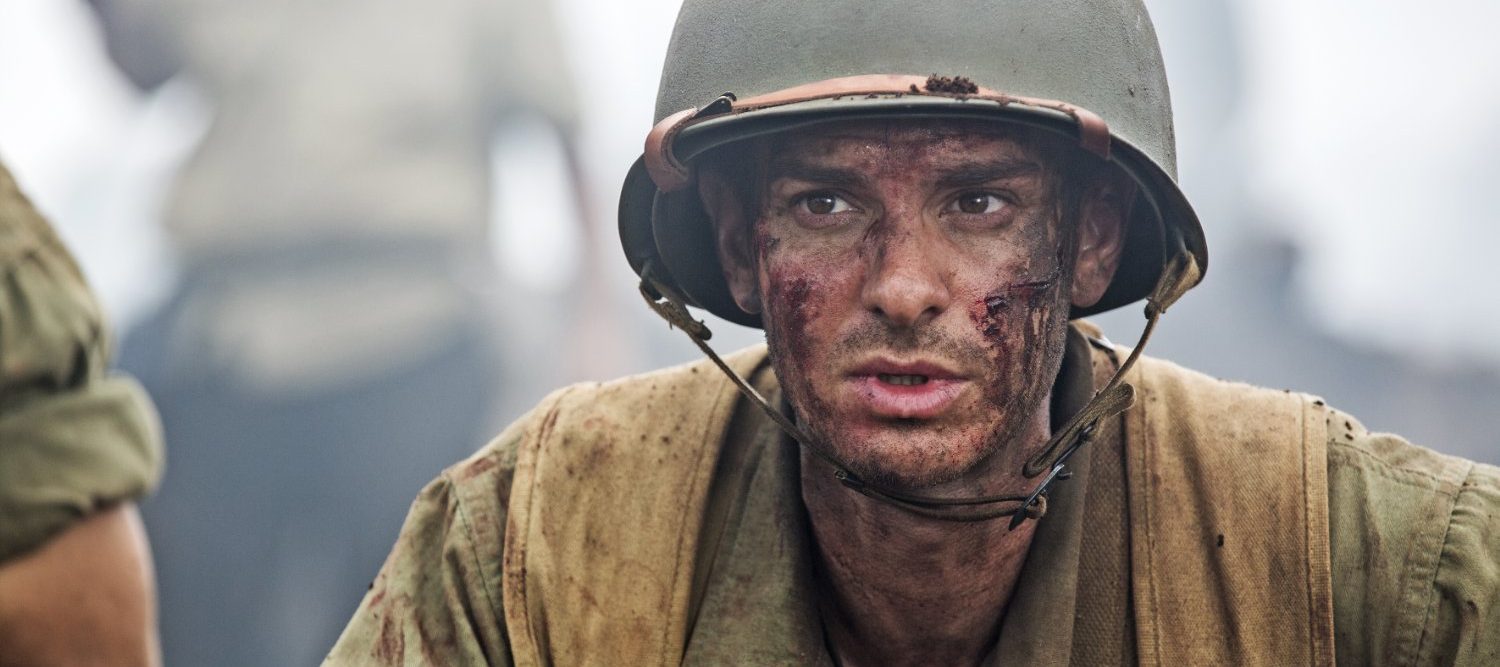Review: 'Hacksaw Ridge' Redeems and Shocks

Neil Feeney ’19 / Emertainment Monthly Staff Writer
There is no shortage of great World War II action films, many of which have received significant praise from both critics and audiences alike. Films like Saving Private Ryan and the recent Fury are loved and studied often. It’s no real secret that films that enter into this genre can achieve a timeless status. However, only the cream of the crop can truly master what that era entailed, and portray it in not only a sensitive way, but a way that honors the sacrifices made. And with such an amazing story such as Desmond Doss’, extra precautions need to be made. Since director Mel Gibson’s downfall from fame with his leaked outbursts, he seems to have carefully planned his directorial return to Hollywood with this heroic tale. Hacksaw Ridge takes many key elements from great World War II films and applies them to an untold true story, positioning itself to very well become a new modern classic.

The religious themes of Christianity are woven throughout the story fantastically, giving Doss enough motivation to justify his actions and enough doubt to reveal his true faith. A realistic portrayal of Christianity can be lost in the mainstream media, but Gibson portrays it well in this film, showing Doss not as a fanatic extremist, but as a human being finding strength through faith. He carries and protects his Bible (which does have a picture of his fiancé Dorothy), prays regularly, and isn’t shy about his faith. Even though it is an important theme of the film, Doss’ faith is presented in a way that isn’t too heavy-handed and doesn’t take the audience out- but rather complements- the story.

The acting was also very impressive, with Andrew Garfield leading the cast as Doss, a role that at first glance does not seem right for him. Upon experiencing his performance, one can see why he was chosen. Garfield plays the role with such an impressive mix of intensity and boyish charm that one can even get past the Southern accent. This role will no doubt boost his resume and show that he is ready for more mature roles. Vince Vaughn also brings his A-game, on a new mission to prove that he can act in more dramatic roles. As Doss’ Sergeant Howell, Vaughan uses his comedy background to give sympathy to a rugged character, and create a more likeable superior. Sam Worthington is back as well, playing the Captain of the squad. He has not been in anything uniquely noticeable since Avatar, though his blank acting style is of well use here, allowing for some great character moments when his guard drops. Gibson does a great job of directing both large cast and smaller, more personal moments, and for handling the unique cast of characters.

Overall Grade: A-
Watch The Trailer:
[embedyt] http://www.youtube.com/watch?v=s2-1hz1juBI[/embedyt]